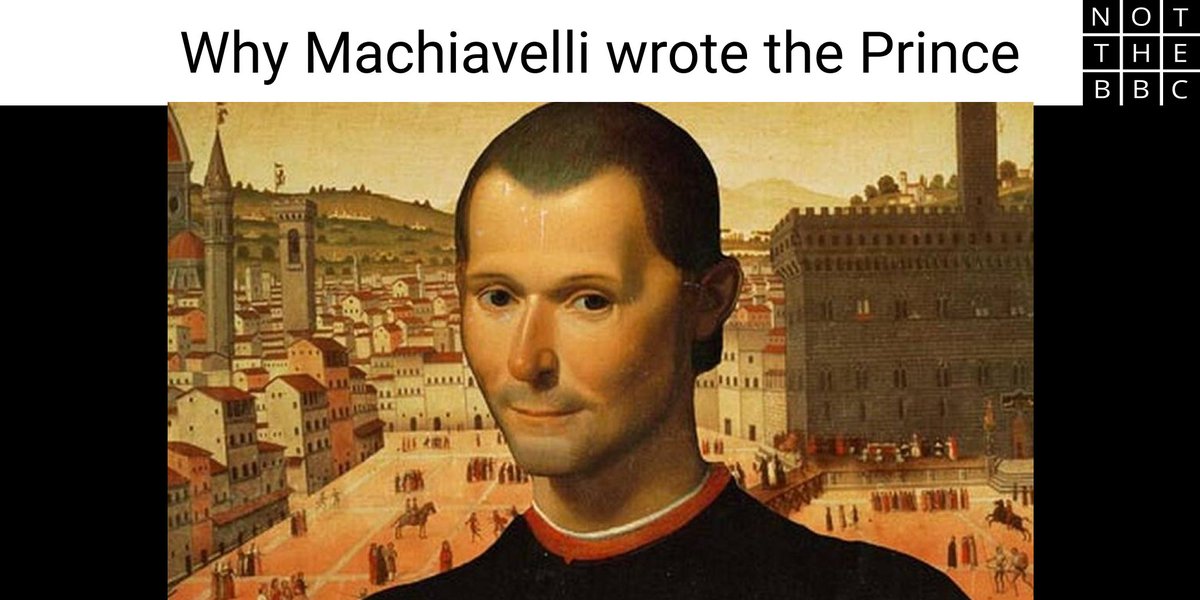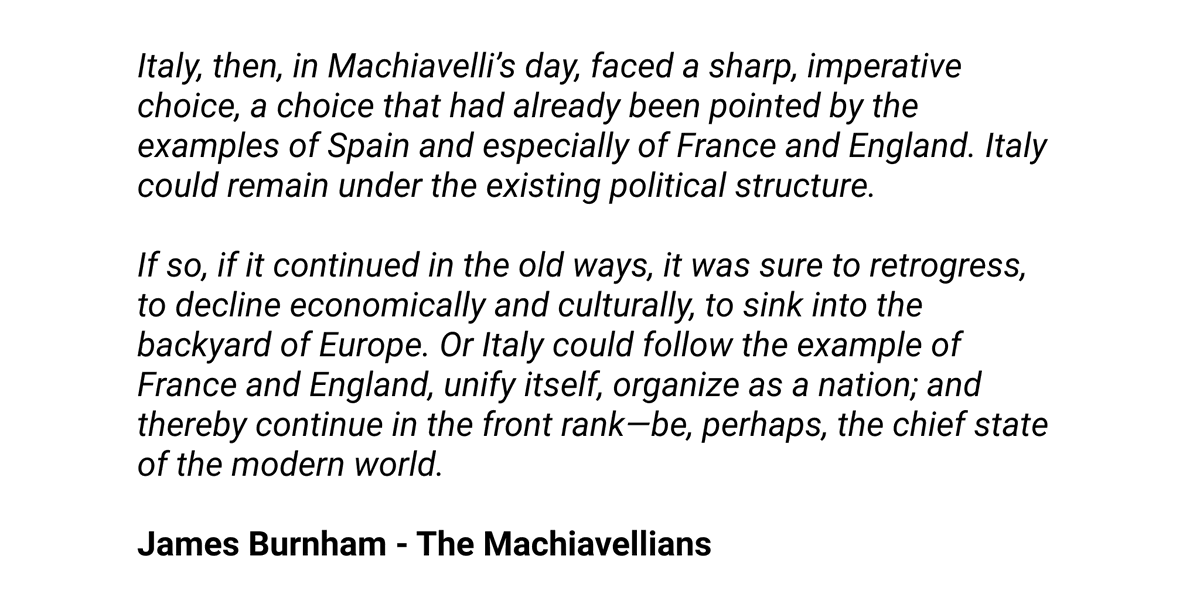The term Machiavellian is now euphemistic for distasteful, manipulative behaviour, but according to James Burnham, author of the Machiavellians, Machiavelli was merely a pragmatist writing with a practical political purpose: the unification of Italy.
Unlike most political animals, Machiavelli was not interested in wishful thinking or in deceptive double-speak; his intention was to surgically analyse political history to draw principles with which he could prescribe a course of action to reach his goal.
He was a political scientist in the true sense of the term.
So why was Machiavelli so keen to unify Italy?
So why was Machiavelli so keen to unify Italy?
He was writing in the first quarter of the 16th Century when other powerful nations such as France, England and Spain had unified, whereas Italy "was divided into a number of turbulent, varying states, provinces, and half-states."
This had left Italy vulnerable:
This had left Italy vulnerable:
"This fragmentation of Italy had left it open to an uninterrupted series of invasions, by adventurers, junior members of royal families, knights returning from the Crusades, kings, and emperors."
The city-states of Italy had their chief influence during the 14th and 15th Centuries, when Europe was predominantly feudal and agricultural (read: de-centralised).
The economy was not yet at a stage where there were benefits to scale.
The economy was not yet at a stage where there were benefits to scale.
But in Machiavelli's time, when there were ships crossing the Atlantic, Italy had the centralised powers of England, France and Spain to contend with.
The city-states thus not only risked Italy's security, but were holding it back from thriving through the newfound benefits of scale:
Machiavelli concluded that unifying around a Prince was the best way to transition into a nation-state.
The feudal lords did not want nation-states, "which were sure to bring the destruction in their power and privileges", whilst the Church "knew that its international overlordship was gravely threatened if the national system were successful".
He thus sought to build a coalition between two parties who would benefit from a national system: the rising merchant class and the monarchy.
The merchant class would benefit from the economic fortunes made possible by national scale.
The merchant class would benefit from the economic fortunes made possible by national scale.
The monarchy, meanwhile, was attracted by the prospect of realising full political sovereignty. Unlike the merchant class, the King also had the experience to rule.
An alliance was made, and Machiavelli set pen to paper to advise a would-be Prince on how to achieve his goal.
An alliance was made, and Machiavelli set pen to paper to advise a would-be Prince on how to achieve his goal.
N.B. The Italians did not heed his advice.

 Read on Twitter
Read on Twitter



